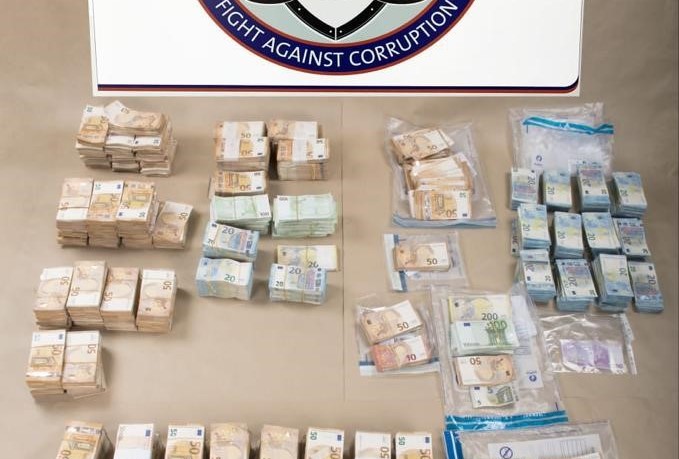The World Cup in Qatar ended on Sunday with one of the most thrilling finals in football history but the corruption scandal in the European Parliament (‘Qatargate’) does not disappear from the limelight and will continue to intrigue the European institutions until it has been fully investigated and justice has been done.
As previously reported, the European Parliament – the most implicated institution - adopted on Friday a resolution in response to the corruption allegations, stressing the broader need for greater transparency with an overwhelming majority - 541 votes in favour, two against, and three abstentions.
The parliament is appalled by the recent allegations that MEPs, former MEPs and parliament staff are involved in corruption, money laundering and participation in a criminal organization. They support the full cooperation of the Parliament with the ongoing investigation, noting that "internal systems failed to prevent corruption."
They have also denounced the alleged corruption attempts by Qatar, which – if true - would constitute a serious foreign interference in European democracy by paying large sums of money or offering large gifts to people with important positions in the Parliament.
As an immediate measure, the Parliament decided to suspend all work on legislative files relating to Qatar – particularly concerning visa liberalization with two Gulf states, the EU aviation agreement with Qatar, as well as planned visits, pending the results of the Belgian police investigation.
The European Commission, which had prepared these files, appeared to be taken by surprise last week when it somewhat prematurely announced that it had approved visa liberalization agreements with Qatar and Kuwait after an assessment.
While the Parliament has the final say as regards visa liberalization, the Commission could not explain why other Gulf countries -Bahrein and United Arab Emirates that have signed normalization agreements with Israel (‘Abraham Accords’) – had not been assessed for visa liberalization.
As regards the aviation agreement, a Commission spokesperson said last week that it had already been signed in October 2021 but that only six member states have ratified it yet. In the meantime, the aviation agreement will be applied pending the final ratification, unless the parties concerned decide to suspend it.
At the heart of the scandal lies the cash of altogether €1,5 million found in the homes of former Italian MEP Pier Antonio Panzeri and current Greek MEP Eva Kaili Brussels. Of this sum, €600,000 was found in a suitcase carried by Kaili's father as he was leaving the Sofitel hotel in downtown Brussels. Kaili’ partner, Francesco Giorgi, is also her parliamentary assistant and a former assistant of Panzeri.
A new NGO, Fight Impunity, which claims that its task is the fight against impunity and for transitional justice, is also part of the corruption scandal. Founded by Panzeri in September 2019, it apparently employed Giorgi and another parliamentary assistant. EU’s foreign policy chief, Josep Borrell, mentioned the NGO Fight Impunity in a speech last week at the EU-NGO Forum on Human Rights:
“I am sorry to say that one of the Non-Governmental Organisations (NGO) who has been involved in the European Parliament scandal is called “Fight Against Impunity”, he said. “Sorry, but it is the way it is. But we are setting a new Global Observatory on Fighting against Impunity, and we are going to allocate €20 million for that.”
Furthermore, ‘Fight Impunity’ managed to attract former European Commissioners as honorary board members: Emma Bonino, Dimitris Avramopoulos, Federica Mogherini, and Cecilia Wikström. As late as in March 2022, its annual report on the state of impunity in the world was presented at the College of Europe in Bruges, whose rector is Mogherini, the predecessor of Borrell.
A Swedish MEP known for her engagement in human rights told The Brussels Times that she was approached by Fight Immunity and asked if she was interested in becoming a board member. At that time, the NGO was not suspected for anything and she wanted to know more about its activities before she decided. But after she had asked for a copy of its financial accounts, the contact was interrupted.
Since the scandal was disclosed, the board members have resigned and one of them, Avramopoulus, told media that he had received the Commission’s approval before joining the board. At the Commission’s press conference on Monday the chief spokesperson confirmed that the Commission had carried out a due diligence investigation of the NGO but did not clarify if also included the accounts.
It also emerged at the press conference, that Avramopolus is a candidate to the post as as special EU envoy for the Gulf region, of which Qatar is part. It is a new post which was announced by Borrell already in February this year. Asked if his candidature had been cancelled in view of Qatargate, the EU lead spokesperson for foreign affairs replied that he could not comment on it since the procedure is still in progress.
M. Apelblat
The Brussels Times

